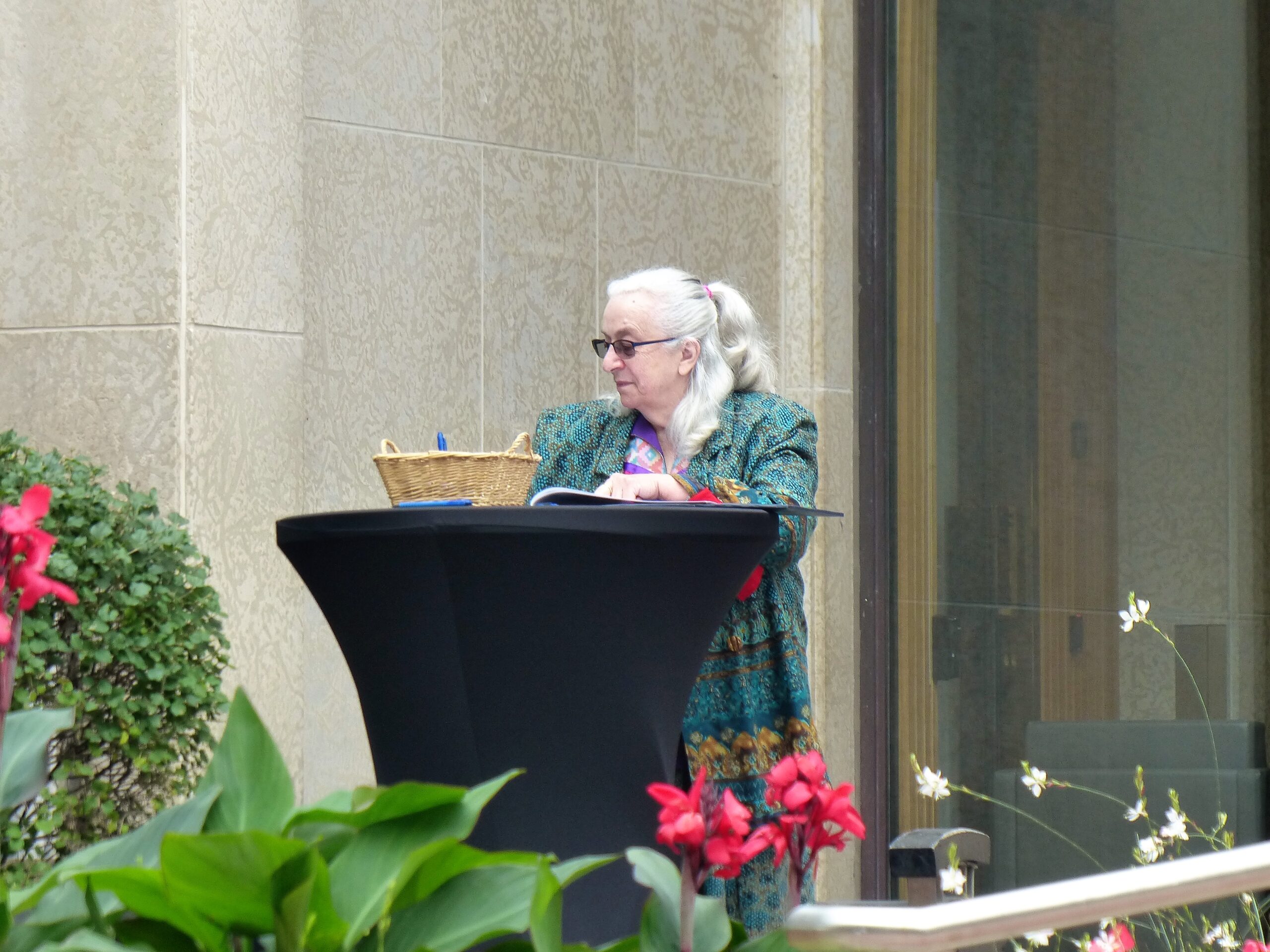Since 2021, Share the Gifts-Honour the Treaties has been an active member of the Winnipeg Indigenous Accord. The Accord is ‘a living document’ through which the City of Winnipeg and organizations that apply are accepted as partners and work together towards reconciliation in Winnipeg—to implement the 94 Calls to Action (C2A) of the Truth and Reconciliation and the Calls for Justice (C4J) of the National Inquiry on Missing and Murdered Indigenous Women, Girls and Two Spirit People. Each partner organization chooses specific calls of the C2A and C4J on which they commit to work. Annually we submit a report updating our progress on our chosen goals. Here are our goals:
- Goal 1: related to Calls to Action 46 ii (repudiating the Doctrine of Discovery); 46 iv (renewal or establishment of Treaty relationships based on principles of mutual recognition, mutual respect, and shared responsibility for maintaining those relationships into the future) and 48 (education and action to support the UN Declaration on the Rights of Indigenous Peoples)—to continue and expand our education work through completing our website and beginning presentations/workshops.
- Goal 2: related to Call to Action 61 (to establish permanent funding to Aboriginal people) and respecting Principle #7 of the Winnipeg Indigenous Accord—to continue to explore and understand the role of money in colonization and ways of decolonizing money in the process of establishing our reparations fund as advised to do at our most recent Elders’ consultation.
- Goal 3: related to Calls for Justice for All Canadians 15.2 (decolonizing to learn true history) and 15.4 (becoming a strong ally)—to continue expanding our own understanding and information on our website concerning MMIWG, including seeking to post blogs by those involved in MMIWG and acting on structural reparations (advocacy) on issues related to MMIWG.
In 2023 the Winnipeg Indigenous Relations Department upped the activity for Accord partners—there are now over 200 individuals, companies, non-profits, and charities signed on. It held a full day of ceremony and workshops in November on the annual day that new Accord partners officially signed on. The event was held at the Canadian Museum for Human Rights which was closed for the day for the event. A number of the Share the Gifts-Honour the Treaties members of the Keepers’ Circle attended.
The day started at 7:30 am with ceremony held by Elder Mae Louise Campbell. The pipe ceremony and teachings started the day in a good way. Balance was provided by a male pipe carrier who also offered a pipe ceremony. Then a Qulliq was lit by an Inuit woman and Elder guidance was offered by Robert Greene, Elder at the CMHR.
Breakfast was provided—delicious—with short welcoming presentations by Mayor Gillingham and Michael Jack, the Chief Administrative Officer for Winnipeg. The key issue identified was/is ‘accountability’–being accountable for doing reconciliation, not just using the words. ‘Where are we regarding the deeper impacts? What resources and reasons arise when folks talk about why not to move on reconciliation?’
Dr. Marcia Anderson, a Dakota physician, was the keynote speaker. I, Elaine Bishop, had the privilege of working a bit with her on Indigenous health issues when I was a member of the Winnipeg Regional Health Authority board before the conservative government. She was great! Some of her wisdom:
- Race based reconciliation is a huge challenge when racism and genocide were embedded in the state of Canada from the beginning.
- Depriving Indigenous People of their land and resources deprived them of their humanity.
- A hard cultural shift is needed to engage with concepts of the collectivity in organizations and people—away from individualism.
- Indigenous health care workers tried to make non-Indigenous health clinics safe and failed—Indigenizing clinics does work.
- Shared some documents from the 1800s—about enfranchisement, Act for Gradual Enfranchisement—acts and policies based on white supremacy.
- What work and whose work is the unlearning and undoing of systemic white supremacy and anti-Indigenous racism?
- All of us have work to do, but there is different work: for Indigenous Peoples—to reclaim and celebrate their dreams including culture, language and identity—woven cedar basket work! For Settler/Newcomers—guided by Indigenous people –copper pot work—undoing white supremacy and, anti-Indigenous racism. Too often it seems non-Indigenous folk want to do cedar basket work rather than copper pot work.
- Name the problem; identify how it is working in specific places; develop a strategy for change! Identify barriers to change and implement strategies—this is long term work!
After lunch—again delicious—there was an afternoon panel on the Accord and Allyship, as well as table discussions. A key learning from the panel for those who want to be allies: it is not a ‘right’ to be an ally. You need to earn it!
I confess that I missed parts of the table discussions as I went to explore the craft displays offered. I spent some time chatting with folks at the Reconciliation Thunder table where I also finally found an orange hoodie! Reconciliation Thunder, #History4Reconciliation, is an Indigenous organization working on education as a tool for implementation of the 94 Calls to Action, with a vision of reducing the numbers of folks who have not yet read the Calls to Action. It amazes me that even after all this time there are Canadians who have not heard about or read them!
Being a member of the Winnipeg Indigenous Accord is one of the ways that Share the Gifts-Honour the Treaties commits to accountability—part of our ‘living document’ in the long-term journey towards reparations and reconciliation.


 Questions about our Reparations Fund
Questions about our Reparations Fund
Leave a Reply